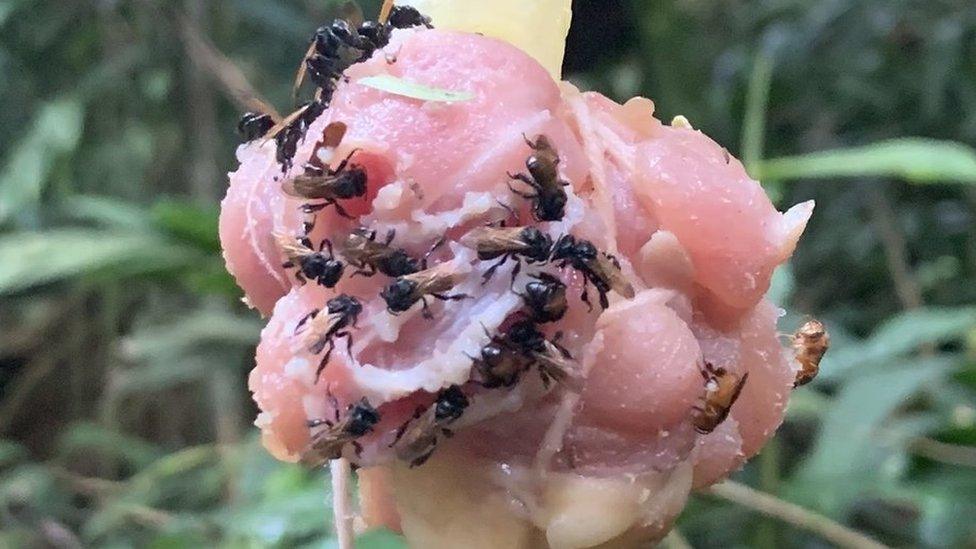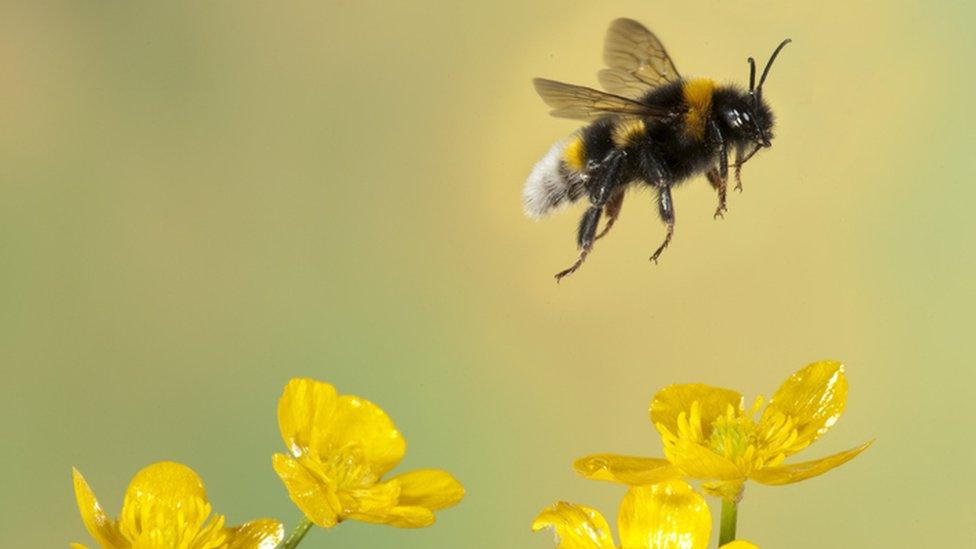Check out these meat-eating bees found in Costa Rica
- Published
- comments

We are often talking about how bees are a vulnerable species - but these "vulture" bees in Costa Rica are far from the fluffy insects you see in your garden!
The stingless bees from the Trigona family have evolved an extra tooth that can chomp on meat!
Not only that, but over time, they have developed a type of gut bacteria capable of digesting food that does not come from plants - chicken for example!
A team of researchers from the University of California, Riverside (UCR) believe these bees have been forced to develop a taste for other sources of food as there is too much competition for nectar.

Although UK bees may buzz around the table when you are having a BBQ, they aren't after your sausages.
The researchers who travelled to study the bees in Costa Rica, left fresh pieces of raw chicken suspended from branches.
They smeared it in petroleum jelly to make sure ants or other greedy insects didn't get there first.
The scientists were amazed as not only did the vulture bees descend on their meaty feast quickly, but they used their hind legs to form what Quinn McFrederick - a UCR entomologist (someone who studies insects), described as "little chicken baskets," to collect as much protein as they could carry.
Vulture bees have earned their nickname as the gut bacteria found in their digestive systems are "similar to ones found in actual vultures, as well as hyenas and other carrion feeders" said McFrederick.
Why are bees so important?
A carrion feeder is a type of animal that mainly eats the bodies of dead animals.
What's more, vulture bees - despite not being able to sting - can still harm humans as they have a bite that can leave a sore blister behind.
However, the bees do still produce honey which the researchers say is very sweet and edible.
- Published24 November 2021
- Published24 November 2021

